Cuba
Publishing activities related to my residence in Cuba in the years 1985 - 1989
I spent in Cuba 4 years, from 1985 to 1989. In addition to taking care of my two little girls I worked first at the cultural department of the Czechoslovak Embassy and later taught Czech at the University of Havana. In a one year course, the students were being prepared for their future studies in Czechoslovakia. It was amazing how quickly some of them, highly motivated, could grasp this for them difficult language.
The situation in Cuba was different from Angola. It helped me a lot that I could speak Portuguese and was relatively quickly able to switch to the related Spanish. The country was, in the same way as post-war Angola, affected by the lack of foodstuffs and other goods, there was a rationing system for local population, but it did not apply to foreigners, because we shopped in well-stocked diplomatic shops (so called Tiendas Diplomaticas). The security situation in both countries was incomparable - Cuba was (and I think that it still is) one of the safest countries in the world. Driving (I got myself a very old green Lada) was safe as well and I lost my inhibitions to drive with small daughters in the rear. The only thing for me to do was to plan how to use these four years of my life at the fullest.
Of course I crisscrossed the island taking part in various excursions, but I also managed to visit Nicaragua and Mexico.
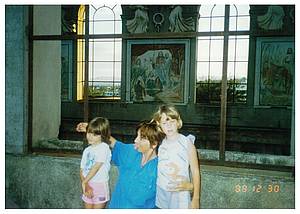
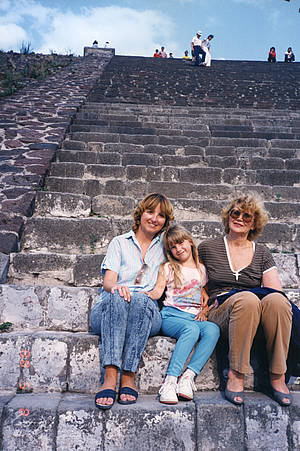
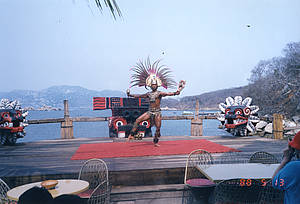
Nicaragua, Mexico Teotihuacan, Acapulco
One of the highlights was getting the permission to visit U.S.A. which nobody believed would be possible because of the political obstacles on both sides. There was no American consulate in Havana, American interests were represented by the Swiss Civil Mission, there was no direct transport connection between the countries which are situated so near to each other. But my desire to visit the country which I knew only from novels by my favorite writers and from reading National Geographic was very strong and I made major effort to achieve it. In the end the American consul at the Swiss Mission granted the visas on the spot and free of charge (nobody could believe it) and the Czechoslovak Embassy could not object because at that time it was already permitted for Czechoslovak citizens working abroad to spend their holiday also in the third country of their choice. We flew to Montreal and went by bus to New York, visited Washington, Philadelphia and Niagara Falls. It was amazing and very educative.
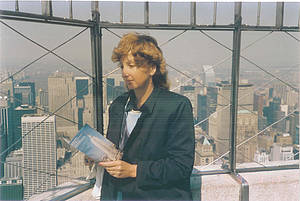
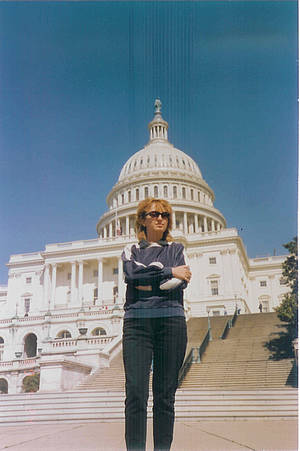
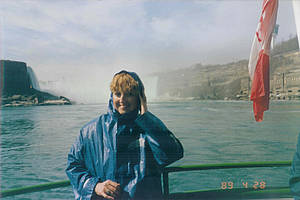
U.S.A. Empire State Building, White House Washington D.C., Niagara Falls
Otherwise I dedicated a lot of time to studies of literature. My publications for the magazines World Literature (Světová literatura) and Literary Monthly (Literární měsíčník) dealt with several themes. The most interesting for readers in Czechoslovakia was the information about Pulitzer prize awards and about activities of Cuban institution called Casa de las Américas.
Through a special source, I could always get the book which won Pulitzer prize in original long before it was readily available in Czech bookstores, so that I could annually publish articles about the winner.
Pulitzer Prize 1983 (Alice Walker: The Color Purple). World Literature 3/1986 , pp. 239-240
Pulitzer Prize 1984 (William Kennedy: Ironweed). World Literature 6/86, page 235
Pulitzer Prize 1985 (Alison Lurie" Foreign Affairs). World Literature 6/87 , pp. 228-229
Second theme was Casa de las Américas. It is an organization which was founded in April 1959 with headquarters in Havana and the prize of Casa de las Américas belongs to the oldest and most prestigious awards in Latin America.
http://www.casadelasamericas.org/casa.php
During the years the winners of this prize in literature in various categories (in Spanish or Portuguese: poetry, prose essay, report, from 1976 also Caribbean Literature in English) included Edward Brathwaite , Humberto Costantini , Roque Dalton, Eduardo Galeano , Renato Prada Oropeza, Luis Britto García and many others. The winners were announced during regular conferences attended by celebrities mainly from South and Central America – I reported about it for the Czechoslovakian public in my articles. One of them (about Literature of Caribbean Region in English) was also published in a Yearbook of Casa de las Américas.
1. Awards by Casa de las Americas 1985, Světová literatura 5/86, str. 248-249
2. Awards by Casa de las Americas 1987, Světová literatura 2/88, str. 242-243
3. Awards by Casa de las Americas 1988, Světová literatura 6/88, str. 245
4. What is Casa de las Americas, Literární měsíčník 1/89, str. 137-8
5. Awards by Casa de las Americas 1989, Světová literatura 6/89, str. 248 -9
6. Awards by Casa de las Americas 1990, Světová literatura 6/90, str.249-250
7. Literature of Caribbean Region written in English, La Literatura anglófona del Caribe. Yearbook Casa de las Américas, Havanna 1990
As all these articles are in Czech language, the links to them are available only in the Czech version of this webpage.
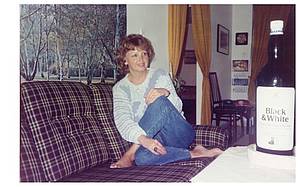
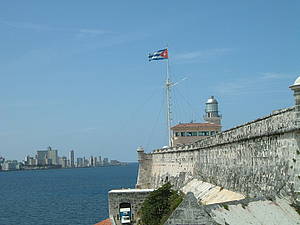
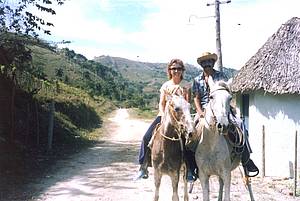
Cuba - in the flat of Sierra Maestra building (life is "Black and White), view from the fortress to Malecon promenade, Havana, on the horseback in the eastern mountains around Santiago de Cuba
We returned from Cuba in autumn 1989, shortly before the start of "velvet revolution". The editors of the World Literature, who did not need to consider any censorship and self censorship pressures any more, published immediately at the beginning of 1990 my study about political power in contemporary literature written in English. The publication of this article was from various reasons delayed and I was very proud when it finally appeared - it has not lost from its timeliness till now - or maybe it became even more relevant.
Topic of Political Power in English novel of 20th Century (Téma politické moci v anglickém románu 20. století), World Literature - Světová literatura 2/90, pages 245-249


